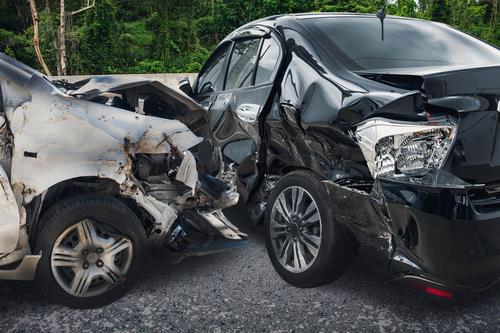Proving liability in multi-car accidents involves determining fault through evidence like police reports, witness statements, and accident reconstruction. Key factors include identifying the initial negligent driver, chain reaction events, and adherence to traffic laws. Clear documentation and legal guidance are crucial for assigning responsibility and pursuing fair compensation.
Dealing with the aftermath of a car crash comes with many difficulties to overcome. It can be tricky to establish who is at fault when multiple vehicles are involved. Knowing how responsibility is determined can shed light on the situation, making it easier for those impacted to pursue the course of action. At this time, getting info about car accident law in Las Vegas can make all the difference to your case.

Exploring Multi-Vehicle Collisions
Car pile-ups, known as chain reaction accidents, usually happen in areas with lots of traffic flowing through them. They involve cars crashing into each other in a sequence, causing a ripple effect just like falling dominos. They can happen due to reasons such as bad weather conditions, leading to poor visibility or distractions from the road, or abrupt braking actions. These are often seen as the main triggers for such unfortunate events, where it becomes pretty challenging to assign blame or responsibility with certainty, given the involvement of multiple parties in the aftermath of these chaotic crashes.
Factors that Impact Accountability
Numerous factors are key in determining accountability in a situation like this one. The order of events that led to the crash is a key point of interest. Investigators examine where the vehicles were positioned, what actions the drivers took, and the road’s state. This helps piece together how the accident occurred. Witness reports and video recordings from surveillance cameras offer different perspectives. Each of these elements contributes to understanding exactly what happened and plays a part in assigning blame.
The Function of the Police Force
Law enforcement participates in investigations by collecting information at the scene and speaking with witnesses to document details that can be used as evidence in legal matters. They carefully analyze the data to understand the sequence of events and establish accountability for those involved.
Influence of Insurance Companies
Insurance companies investigate claims by reviewing evidence and considering factors. They consider things like damage patterns and testimonies to determine fault accurately and provide compensation for all parties involved. They collaborate with law enforcement agencies to enhance investigation accuracy and liability determination.
Laws Governing the System and its Core Values
Understanding principles is crucial in determining fault in car accidents, as concepts like comparative negligence and contributory negligence impact the final judgments on outcomes. The extent of fault held by each party is evaluated under negligence, which also affects how compensation is distributed. On the other hand, a party may be completely barred from recovery if they are deemed to be at fault. Understanding these intricacies is vital for individuals dealing with such scenarios.
Harnessing the Insights of Analysts
Skilled analysis is crucial in investigations as experts work to reconstruct accidents using approaches to understand the sequence of events that occurred during the incident. They do so by considering elements like vehicle speed and angles of impact along with road conditions to offer perspectives that can be used as strong evidence in legal proceedings to help determine responsibility fairly.
The Significance of Documentation
Effective record-keeping is essential in aiding liability claims with support materials such as photographs and videos alongside thorough scene notes for a comprehensive accident overview. Gathering witness contact details proves advantageous in both immediate investigations and legal proceedings as crucial evidence.
Effects on Those Affected
When multiple vehicles are involved in accidents, it can deeply impact the individuals affected by it. Physical harm, emotional distress, and financial strain are frequently linked to such events. Determining responsibility is crucial for victims to obtain the compensation they need. This can help ease some of the challenges they face. Being aware of the procedures and being informed about the actions to be taken allows those impacted to manage what comes next.
Looking For Help With Legal Matters
Seeking advice from lawyers who specialize in handling accident cases can bring many benefits. Their valuable input guarantees the protection of your rights during the proceedings. Their knowledge helps them understand concepts and push for just reimbursement. Having legal representation is crucial for achieving a favorable outcome.
In Conclusion
Determining who is at fault in car accidents requires a strategy involving various factors. Taking into account the complexities of the process and legal rules while recognizing the parties’ responsibilities can help those impacted by such incidents. By educating themselves and obtaining support when needed, individuals can better navigate these scenarios. In the end, pinpointing liability accurately leads to compensation and a just outcome for everyone involved.
